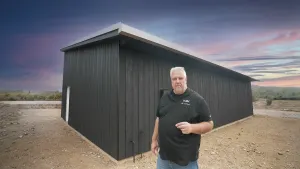Skills of Maintenance Should Be Celebrated
While we're all striving for "maintenance free," maintenance should be celebrated because it's a value change, according to Brent.
The answer is not the easy road because there's no such thing.
The skills of maintenance are really skills of craftsmanship. Think about it: the opposite of maintenance is discarding.
Sometimes the easy thing to do (such as tearing something down) isn't the right thing to do. Instead, Brent recalls a time where his team spent 200 hours, documenting and cataloguing all parts and pieces, carefully taking them apart, and then rebuilding windows and frames, changing out the rotten pieces.
Yes, the easy method would have taken about 20 hours, but all the things that were great about the building they were working on had to be restored. And it required skill to make something that was already old, last another 100 years.

 Share on facebook
Share on facebook Tweet
Tweet Email
Email Share on Linkedin
Share on Linkedin


















